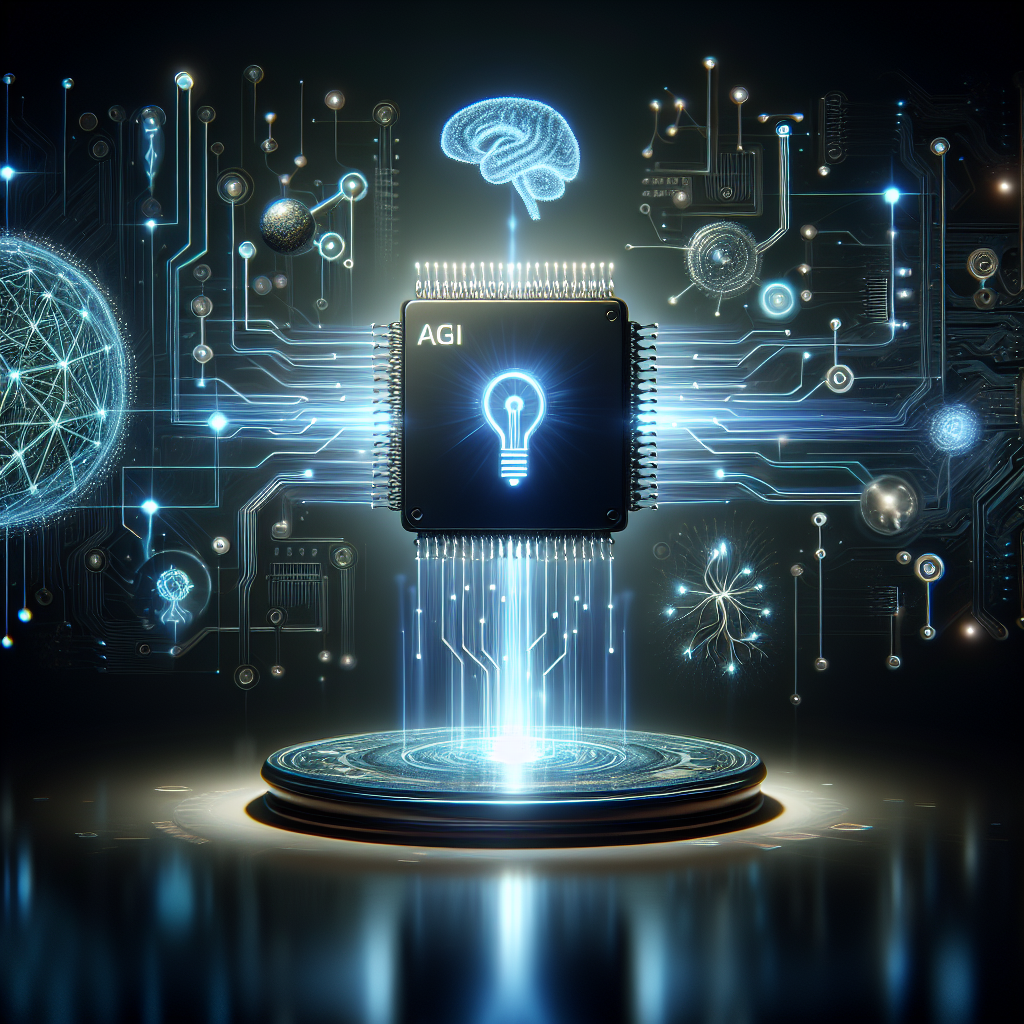Artificial General Intelligence (AGI) is a term that has been gaining increasing attention in the fields of technology and innovation. AGI refers to the development of machines that possess human-level intelligence and cognitive abilities. While narrow AI systems are designed for specific tasks, AGI aims to create machines that can perform a wide range of tasks and adapt to new situations in a way that mimics human intelligence.
The potential impact of AGI on society and the economy is immense. From revolutionizing industries to enhancing healthcare and education, AGI has the power to transform the way we live and work. In this article, we will explore the concept of AGI, its applications, and the challenges and opportunities it presents.
Understanding AGI
AGI is often referred to as “strong AI” or “full AI” because it represents the pinnacle of artificial intelligence. Unlike narrow AI systems, which are designed to perform specific tasks such as speech recognition or image classification, AGI is capable of learning and reasoning across a wide range of domains. This means that AGI can perform tasks that require human-like intelligence, such as understanding natural language, making decisions, and solving complex problems.
The development of AGI is based on the idea of creating machines that can think and learn like humans. This involves designing algorithms and systems that can process and interpret information, make decisions based on context and experience, and adapt to new situations. Researchers in the field of AGI are working on developing algorithms and models that can simulate human cognitive abilities such as perception, reasoning, and problem-solving.
Applications of AGI
The potential applications of AGI are vast and varied. From healthcare and finance to transportation and entertainment, AGI has the potential to revolutionize industries and improve the quality of life for people around the world. Some of the key applications of AGI include:
1. Healthcare: AGI systems can be used to analyze medical data, diagnose diseases, and develop personalized treatment plans for patients. By leveraging the power of AGI, healthcare providers can improve patient outcomes, reduce costs, and enhance the efficiency of healthcare delivery.
2. Finance: AGI can be used to analyze financial data, predict market trends, and optimize investment strategies. By using AGI-powered algorithms, financial institutions can make better-informed decisions, reduce risks, and maximize returns on investments.
3. Education: AGI systems can be used to personalize learning experiences for students, assess their performance, and provide targeted support and feedback. By leveraging the power of AGI, educators can improve student outcomes, increase engagement, and enhance the quality of education.
4. Transportation: AGI can be used to develop autonomous vehicles that can navigate roads, make decisions in real-time, and ensure the safety of passengers. By using AGI-powered algorithms, transportation companies can improve efficiency, reduce accidents, and create a more sustainable transportation system.
Challenges and Opportunities
While the potential of AGI is vast, there are also significant challenges that need to be addressed in order to realize its full potential. One of the key challenges is the ethical and societal implications of AGI. As machines become more intelligent and autonomous, there are concerns about the impact on jobs, privacy, and security. Additionally, there are concerns about the potential misuse of AGI for malicious purposes, such as surveillance and warfare.
Another challenge is the technical complexity of developing AGI systems. Building machines that can think and learn like humans requires advanced algorithms, computational power, and data. Researchers in the field of AGI are working on developing new techniques and models to overcome these challenges, but there is still a long way to go before AGI becomes a reality.
Despite these challenges, there are also significant opportunities that AGI presents. By harnessing the power of AGI, we can improve the efficiency of industries, enhance the quality of life for people, and address some of the most pressing challenges facing society. AGI has the potential to unlock new possibilities and create a more prosperous and sustainable future for all.
FAQs
Q: What is the difference between AGI and narrow AI?
A: AGI refers to machines that possess human-level intelligence and cognitive abilities, while narrow AI systems are designed for specific tasks. AGI aims to create machines that can perform a wide range of tasks and adapt to new situations, while narrow AI systems are limited to specific domains.
Q: How close are we to achieving AGI?
A: While significant progress has been made in the field of AI, achieving AGI is still a long way off. Researchers are working on developing new algorithms and models to simulate human cognitive abilities, but there are still many technical and ethical challenges that need to be addressed.
Q: What are some of the ethical concerns surrounding AGI?
A: Some of the key ethical concerns surrounding AGI include the impact on jobs, privacy, and security. As machines become more intelligent and autonomous, there are concerns about the displacement of human workers, the potential for misuse, and the loss of privacy and control over personal data.
Q: How can AGI be used to improve healthcare?
A: AGI can be used to analyze medical data, diagnose diseases, and develop personalized treatment plans for patients. By leveraging the power of AGI, healthcare providers can improve patient outcomes, reduce costs, and enhance the efficiency of healthcare delivery.
In conclusion, AGI has the potential to be a game-changer in technology and innovation. By creating machines that can think and learn like humans, we can revolutionize industries, improve the quality of life for people, and address some of the most pressing challenges facing society. While there are challenges that need to be addressed, the opportunities that AGI presents are vast and promising. As we continue to push the boundaries of AI research, we are one step closer to realizing the potential of AGI and unlocking a more prosperous and sustainable future for all.

